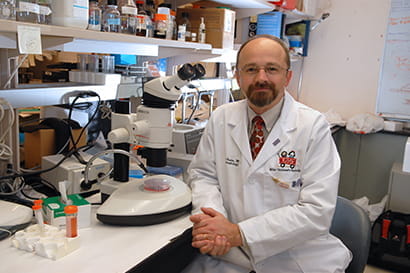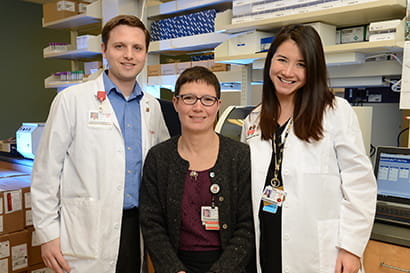The Division of Pediatric Pulmonology, Allergy and Sleep Medicine in the Department of Pediatrics at Indiana University School of Medicine conducts basic, translational and clinical research. Specific areas of study include cystic fibrosis, asthma, bronchopulmonary dysplasia, primary ciliary dyskinesia, specialized physiologic testing, allergic diseases and sleep disorders.
The division has a history of participating in investigator-initiated studies as well as drug trials and is a part of the Cystic Fibrosis Foundation Therapeutic Development Network, the Food Allergy Research and Education Network, and the Pediatric Behavioral Sleep Research Network. The division has been awarded funding from the NIH, the Cystic Fibrosis Foundation, the American Lung Association, the American Academy of Allergy, Asthma and Immunology, and the Food Allergy Research and Education Network.


